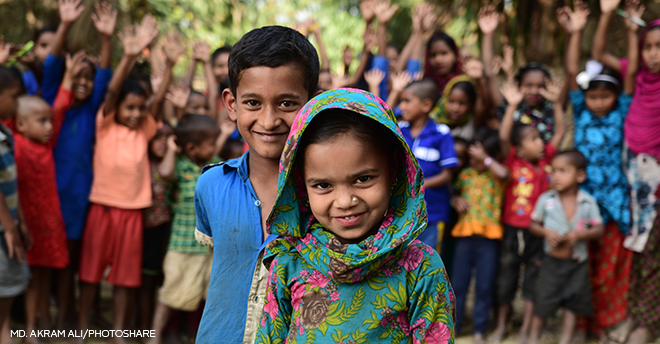
FANTA-supported research on using small-quantity lipid-based nutrient supplements (SQ-LNS) to address malnutrition was highlighted in a featured lecture at the International Union of Nutritional Sciences’ 21st International Congress of Nutrition, held in Buenos Aires in October 2017.
In the lecture, Dr. Kathryn Dewey of the University of California, Davis described key differences in the results of two sets of randomized controlled trials using SQ-LNS for mothers and infants. One set, conducted by the International Lipid-based Nutrient Supplements Project, involved SQ-LNS efficacy trials in Burkina Faso, Ghana, and Malawi; the other, the FANTA-supported Rang-Din Nutrition Study, was an SQ-LNS effectiveness trial in rural Bangladesh. Broadly, Dr. Dewey, who served as the principal investigator in both studies, noted that SQ-LNS increased linear growth among infants in Bangladesh, Burkina Faso, and Ghana but not in Malawi. She said the heterogeneity in response may stem from different populations’ varying potential to benefit from and to respond to SQ-LNS due to such factors as poor baseline nutritional status, inadequate diet, and developmental delays, and she noted that more research is needed. Dr. Dewey also said nutrition interventions may have more impact if they are part of a comprehensive strategy addressing the many causes of stunting and development challenges, such as infections, poor care for women and children, and inadequate child stimulation.
Learn more details on the Rang Din study. FANTA also supported research on the impact of lipid-based nutrient supplements on maternal health and pregnancy outcomes in rural Malawi. Read reports on that research.


